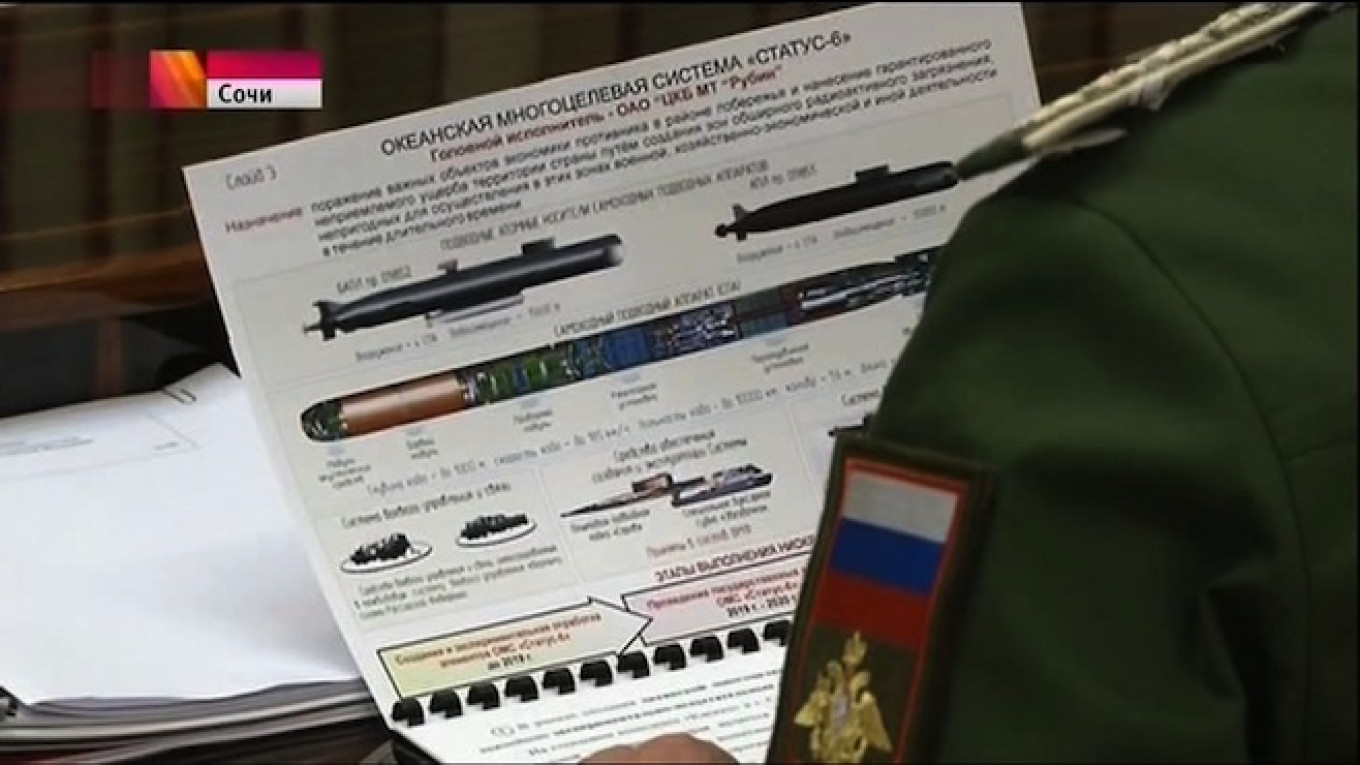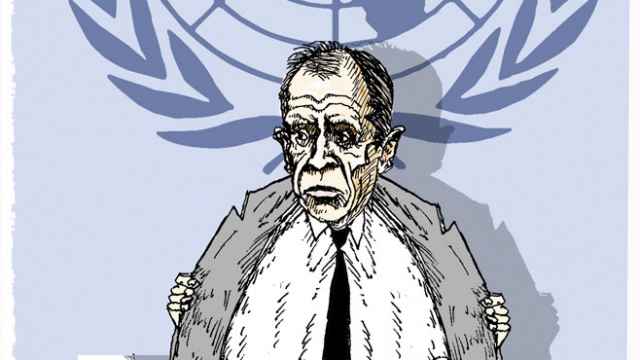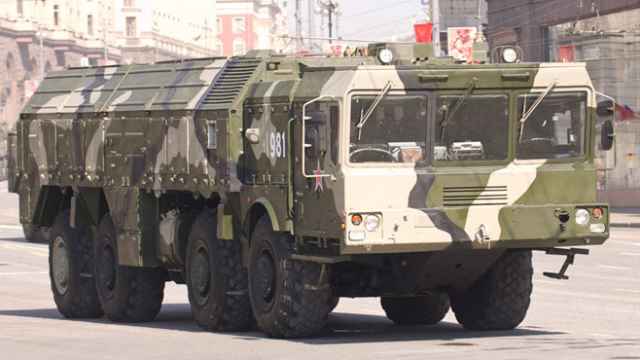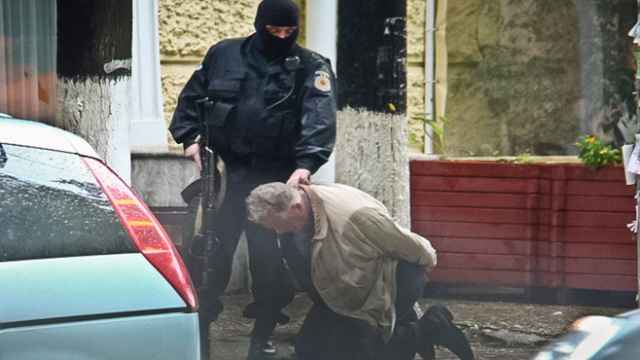Something strange popped up on Russian state television on Tuesday: a Russian military document depicting plans for a robotic submarine packed with radioactive explosives — a so-called dirty bomb — designed to render enemy coastlines uninhabitable.
The weapon, ominously named “Oceanic Multipurpose System — Status-6,” was caught on camera by a state television crew present at a meeting between President Vladimir Putin and his military and defense industry leaders on Tuesday.
The Channel One broadcaster edited its coverage of the meeting to take out images of the document, but not before still shots of the weapon's design and description were published on the Internet. Though much of the document is unintelligible, several important details can be seen.
The first is the purpose of Status-6, which is to damage “important components of an adversary's economy in a coastal area and [inflict] unacceptable damage to a country's territory by creating areas of wide radioactive contamination that would be unsuitable for military, economic, or other activity for long periods of time.”
Second is a technical diagram of the weapon, which appears to be an unmanned mini-submarine packed with a massive dirty bomb, though its intended explosive force isn't clear. The vehicle is apparently about one-third the size of a 155-meter-long Oscar-class nuclear-powered submarine.
The document shows Status-6 may be designed to be transported under the belly of a particular Oscar-class submarine, the special-purpose Belgorod. Another ship, the under-construction Khabarovsk — a mysterious sub design identified only as Project 09851 — is also listed as a potential mothership.
Russian nuclear forces expert Pavel Podvig wrote on his blog, Russian Forces, on Wednesday that the vehicle attached to Belgorod in the document is not Status-6, which he wrote is likely much smaller — allowing anywhere from three to six of the dirty bombs to ride along the hull.
While several details about the new weapon can be gleaned from screen captures of the Channel One news report, what is not clear is why the Kremlin would allow such a leak to take place. Putin's spokesman, Dmitry Peskov, on Thursday confirmed the leak happened by accident.
Maxim Shepovalenko, a former Russian naval officer who now works as an analyst for one of Russia's most prominent defense think tanks, the Center for the Analysis of Strategies and Technologies, told The Moscow Times on Thursday that the leak was probably intentional.
“This is a gentle hint at the kind of asymmetric response Russia is prepared to execute should aggravation prevail over a reasonable tradeoff in its standoff with the West in general, and the U.S. in particular,” Shepovalenko said.
In other words, it is a “'remember me' to the U.S. from the late Andrei Sakharov,” he added, referring to the father of the Soviet nuclear bomb who later became an outspoken dissident and anti-nuclear activist.
Sakharov in the late 1950s tried to convince Soviet Premier Nikita Khrushchev to avoid a nuclear arms race with the United States by simply planting massively powerful thermonuclear bombs along the U.S. coastline. If ever detonated, they would create a devastating radioactive tsunami.
In the face of the United States' development of a new class of hypersonic cruise missiles under the Pentagon's Prompt Global Strike program, and the ever-controversial U.S. missile shield, Russia has been looking for asymmetric means of maintaining nuclear superiority.
The Pentagon appears to be taking the threat of underwater Russian nukes seriously. Earlier this year, the Washington Free Beacon news website reported that U.S. military officials were concerned about the development of a weapon similar to Status-6 and had given it the name “Kanyon.”
Contact the author at [email protected]
A Message from The Moscow Times:
Dear readers,
We are facing unprecedented challenges. Russia's Prosecutor General's Office has designated The Moscow Times as an "undesirable" organization, criminalizing our work and putting our staff at risk of prosecution. This follows our earlier unjust labeling as a "foreign agent."
These actions are direct attempts to silence independent journalism in Russia. The authorities claim our work "discredits the decisions of the Russian leadership." We see things differently: we strive to provide accurate, unbiased reporting on Russia.
We, the journalists of The Moscow Times, refuse to be silenced. But to continue our work, we need your help.
Your support, no matter how small, makes a world of difference. If you can, please support us monthly starting from just $2. It's quick to set up, and every contribution makes a significant impact.
By supporting The Moscow Times, you're defending open, independent journalism in the face of repression. Thank you for standing with us.
Remind me later.






